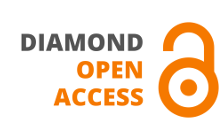Human change, training and innovativeness
DOI:
https://doi.org/10.59051/joaf.v7i1.47Abstract
Change has become an inevitable element which characterises organizations differently. Literature argues the interest of a specific management of the organizational change as far as its success is going to condition its survival. Proportionally, innovation is promoted to a competitive advantage par excellence and becomes a condition of survival. In this piece of research, we will try to demystify the innovativeness, and more exactly a dimension of it which is the openness towards new ideas and practices, taking into account that willingness is crucial to innovation.
The aim of this communication is to suggest a method for the setting - up of the organizational change by having appeal to training. According to this, the successful change will guarantee a better openness towards new ideas and practices.
Downloads
Downloads
Published
How to Cite
Issue
Section
License
Copyright (c) 2016 wided mohamed RAGMOUN

This work is licensed under a Creative Commons Attribution-NonCommercial-NoDerivatives 4.0 International License.
Authors who publish with this journal agree to the following terms:
- Authors retain copyright and grant the journal right of first publication with the work simultaneously licensed under a Creative Commons Attribution License that allows others to share the work with an acknowledgement of the work's authorship and initial publication in this journal.
- Authors are able to enter into separate, additional contractual arrangements for the non-exclusive distribution of the journal's published version of the work (e.g., post it to an institutional repository or publish it in a book), with an acknowledgement of its initial publication in this journal.
- Authors are permitted and encouraged to post their work online (e.g., in institutional repositories or on their website) prior to and during the submission process, as it can lead to productive exchanges, as well as earlier and greater citation of published work (See The Effect of Open Access).






















